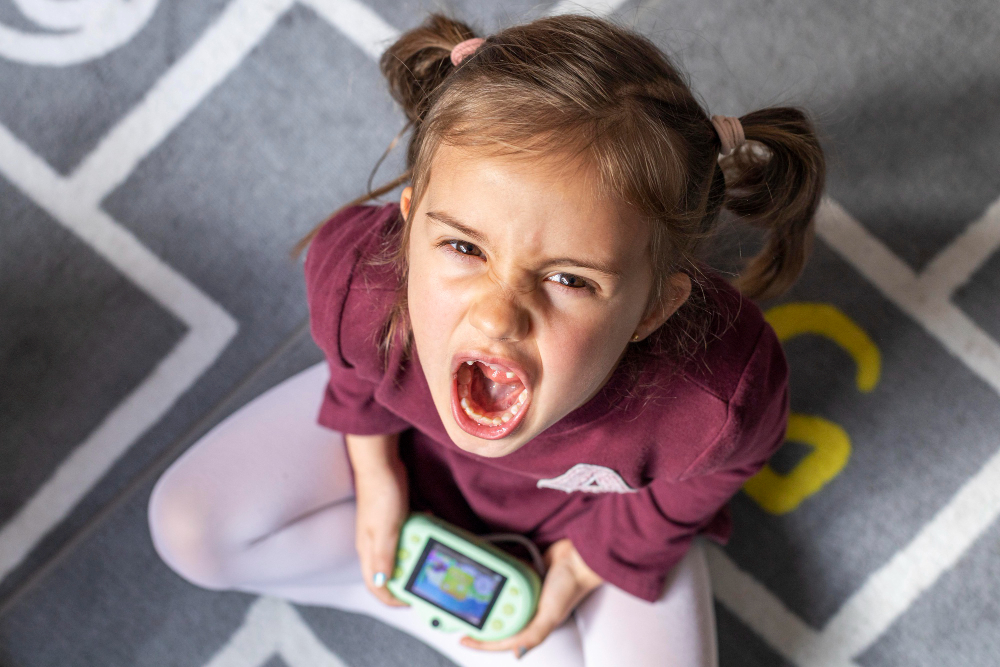
Raising emotionally intelligent children isn’t just about giving them a good childhood. It’s about giving them the tools to thrive for life—mentally, emotionally, physically, and socially.
At TransformationWithin Coaching, we walk alongside you, guiding you with proven tools, trauma-informed strategies, and coaching grounded in science, compassion, and real transformation.
What is Emotional Intelligence?
Emotional Intelligence (EQ) is the ability to recognize, understand, manage, and express emotions effectively in ourselves and in others. Coined by psychologist Daniel Goleman, EQ includes five key components:
- Self-awareness
- Self-regulation
- Motivation
- Empathy
- Social skills
Why EQ Matters More Than IQ?
While IQ may predict academic performance, EQ predicts life success, resilience, emotional well-being, and relational strength. Children with high EQ:
- Handle stress better
- Communicate more clearly
- Build stronger friendships
- Resolve conflict peacefully
- Show compassion and empathy
Yale’s Center for Emotional Intelligence: children with high EQ perform 11% better academically and are better liked by peers and teachers.
The World Economic Forum lists emotional intelligence in the top 10 workplace skills needed for the future.
A 2023 University of Cape Town study revealed that more than 60% of children in South Africa face emotional or behavioral difficulties, reflecting the widespread adversity experienced by many—including factors such as poverty and exposure to violence. This high prevalence highlights the ongoing mental health challenges among South African youth amid difficult social and economic conditions.
Key Elements of Emotional Intelligence in Children
- Self-Awareness – Understanding their emotions, triggers, and reactions.
- Self-Regulation – Managing overwhelming emotions like anger or sadness.
- Motivation – Working toward goals despite challenges.
- Empathy – Recognizing and respecting the feelings of others.
- Social Skills – Building relationships and resolving conflict peacefully.
Signs of Emotionally Intelligent Children
- Can name their feelings (“I feel sad because…”)
- Use coping tools (breathing, journaling, breaks)
- Apologize and make amends
- Show concern for others

When EQ Is Not Developed, Children May Experience these struggles:
Mental Health
- Anxiety and depression
- Low self-worth and confidence
- Difficulty focusing, impulse control
Emotional
- Tantrums or emotional shutdown
- Overwhelm in challenging situations
- Inability to express emotions in words
Social & Relationship
- Struggles with friendships or teamwork
- Bullying others or being bullied
- Misunderstanding social cues
Academic Setbacks
- Acting out in class
- Fear of failure or criticism
- Stress interfering with learning
Physical Health Impacts
- Chronic stress → high cortisol
- Headaches, tummy aches, sleep issues
- Increased risk of long-term illness
According to a South African HSRC study
- Children raised in households with low emotional intelligence are four times more prone to violent behavior.
- They are three times more likely to have suicidal thoughts.
- These children also face a greater risk of academic failure or school dropout.
Why Parents Trust TransformationWithin to Raise Emotionally Intelligent Kids
We Don’t Just Teach—We Transform You First
Change doesn’t start with your child. It starts with you. We help you break inherited emotional patterns so your child doesn’t have to repeat them.
You Become the Calm in Their Chaos
Learn to regulate your own emotional storms so you can stay grounded during meltdowns—without yelling, shutting down, or shaming.
You Gain Language That Unlocks Their Heart
Ditch “stop crying.” Discover emotionally safe phrases that help your child name their feelings, reduce reactivity, and feel truly seen.
Our Tools Build the Brain—Not Just Behavior
Everything we teach is rooted in neuroscience and repetition. These aren’t gimmicks—they’re lasting emotional pathways for life.
You Learn to Respond, Not React
Understand what’s behind the behavior. Our tools help you stay in control, model emotional growth, and discipline with connection—not disconnection.
Science, Simplified
No dense psychology books here. We turn complex child development research into real-life parenting strategies you can use at the dinner table, in the car, or during bedtime.
You Heal While You Raise
You don’t need to be perfect—just willing. As you grow, your child feels safer, more seen, and more secure. Your healing becomes their foundation.
Invisible Tools. Visible Impact.
You won’t walk around with behavior charts. Instead, you’ll embody mindset shifts, reflection cues, and deep inner awareness that reshape everyday parenting.
We Coach You Through the Tough Stuff
Tantrums. Screens. Sibling fights. We walk you through the hardest conversations so you respond with confidence and compassion.
Connection Is Our Bottom Line
Rewards and punishments fade. Emotional closeness doesn’t. We teach you to preserve the bond that matters most—through presence, not perfection.
Why Parents Must Lead Emotional Learning
Parents Are the First Emotional Coaches
- Children copy how parents express, manage, or suppress emotions. Responsive parenting = emotionally safe environments.
Modern Parenting Challenges
- Many adults never learned EQ themselves.
- Trauma, stress, or digital overwhelm affects parenting.
- Emotions are often mislabelled as “naughtiness” or weakness.
Real Parent Reflection
- “My son would throw tantrums, and I thought he was just naughty. After learning about emotional coaching, I realized he was overwhelmed, not disobedient. I changed, and so did he.”
Lifelong Mental & Emotional Impacts of EQ Positively affect
Mental Health Protection
Emotional Strength in Adulthood
Brain Connection
Relationship and Social Benefits
Romantic & Family Relationships
Generational Healing
Without EQ…Adults may feel emotionally blocked, burnt out, or lost. They often repeat cycles of conflict, self-sabotage, or passivity
Our Programmes
Our coaches provide comprehensive interventional support for students through both group and individual program options.
Get In Touch
Reach out to learn more about how we can help, or if you have any questions or concerns
